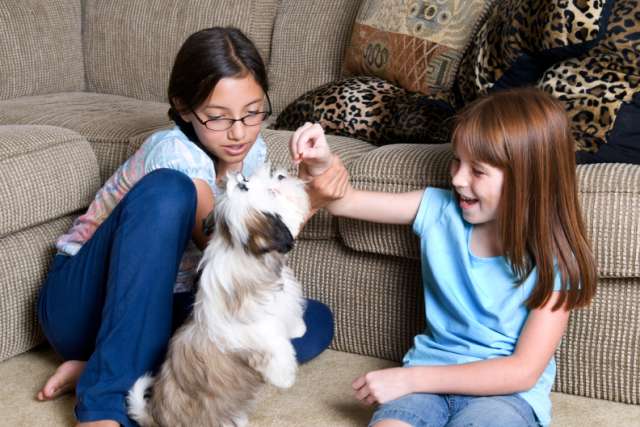Dear Doctors: Our kids are obsessed with a story they heard from a friend that dogs can tell when someone is sick with COVID-19. Is that accurate? I've read dogs can smell diabetes and cancer, but smelling a virus seems far-fetched. Might this have diagnostic value, or is it just a fun fact?
Dear Reader: Your children will be happy to hear that, yes, specially trained dogs have proven to be quite good at detecting COVID-19. It's just the most recent of the numerous ways that dogs have been enlisted to help humans.
Historians say that our relationship with dogs reaches back thousands of years. It began with their help in defending against predators and intruders, assistance in hunting and providing companionship, and has evolved into other types of aid. Dogs have a keen sense of hearing and a remarkable sense of smell. They communicate with each other via visual signals and body language that is so subtle, we humans see and understand only a fraction of it. Small wonder, then, that each of these attributes has come to be channeled into helping humans in health care.
Among the earliest evidence of this relationship is a fresco uncovered in the ruins of a Roman village dating back to the first century A.D. It depicts a guide dog leading a blind man.
By the second half of the 20th century, dogs were helping with an ever-widening range of disabilities. This included enlisting their sense of smell to detect physiological changes, such as those that accompany a diabetic crisis. It's possible due to the dog's extraordinary nose. Depending on the breed, the canine sense of smell is estimated to be at least 10,000 times more sensitive than ours. It means dogs can detect the presence of some chemicals in parts per trillion. This includes the volatile organic compounds produced by our bodies when we are ill, and which are released via sweat, urine, breath and the skin. The first hint of this was in 1989, when a woman was diagnosed with malignant melanoma because her dog kept trying to nibble a cancerous mole.
When the COVID-19 pandemic struck, the diagnostic abilities of dogs were put to the test. Professional trainers claimed high success rates of dogs sniffing out COVID-19 infections, and a few small studies backed them up. In one, specially trained dogs were 97% accurate in sniffing out COVID-19 from sweat samples taken from 335 people. This included finding infection in 31 individuals with no symptoms. When testing moved from isolated biological materials in a lab to actual humans in real-world settings, accuracy dropped a bit.
When it comes to the widespread use of specially trained dogs to diagnose COVID-19, more study is needed. However, researchers and clinicians agree it's a promising avenue. Dogs detected infection up to 48 hours earlier than a PCR test. And while a rapid test requires a swab, chemical reagents and 10 minutes or so to produce results, the dog's response is immediate. There is also interest in harnessing the canine sense of smell to learn more about long COVID.
Bottom line -- your children are likely to hear more stories about dogs sniffing out COVID-19.
(Send your questions to [email protected], or write: Ask the Doctors, c/o UCLA Health Sciences Media Relations, 10960 Wilshire Blvd., Suite 1955, Los Angeles, CA, 90024. Owing to the volume of mail, personal replies cannot be provided.)





